A Pandemic’s Legacy
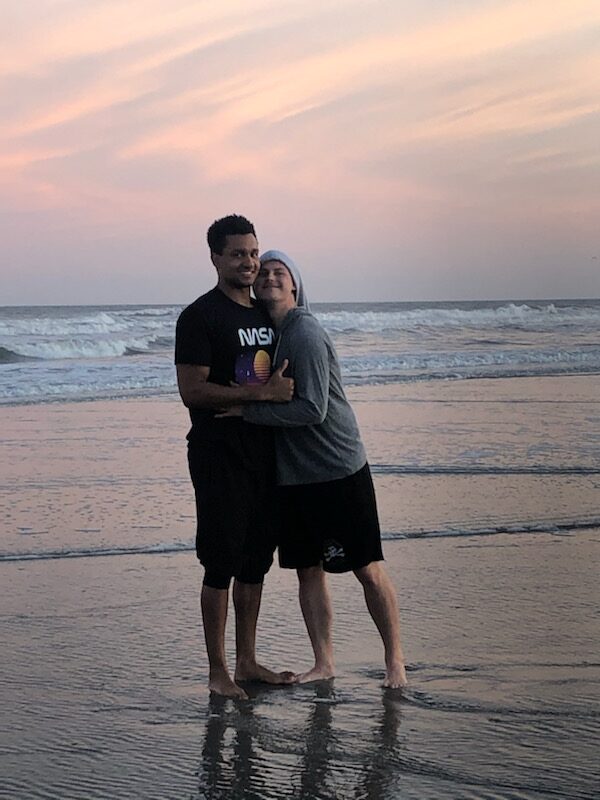
For this, I will remember you:
COVID 19, your time upon this earth will be discussed, studied, dissected and lamented for centuries. You will not be forgotten for the deaths, the illnesses and the unprecedented times you created for mankind. Each of us will have our own story to tell, our own pandemic legacy. Today, I write, for this I will remember you:
You laughed at our busy.
We were all so busy. “How are you doing?” “So busy.” “How are things going?” “Oh, you know, really busy.” When my sons were young, my neighbor perfectly encapsulated that time in my life when she said, “When you have little kids, you are always busy, but you don’t accomplish anything.”
We had places to go, kids had lessons to take, calls needed to be made, items dropped off and items picked up. And then it all came to a screeching halt, and we didn’t in fact slide off the ends of the earth. Will we return to our state of busyness, or are we imagining different futures for ourselves?

You killed our hurry.
We had our little wind up motion inside us, and when the gun went off each morning, the race began. We hurried through breakfast, then getting ready, dropping kids off, negotiating traffic. If we hurried fast enough, we might win. We didn’t know what we would win, but surely all this cortisol rising quickness had to achieve something for us, right?
Some of our hurry died slower than others. We still felt the pull to do, organize, categorize and strategize our day. We wake up, feel the hurry burning inside us, and then ask the all-important question of a pandemic, ‘what day is it?’ and then explained to our hurry it was no longer needed. Whether we did one thing before the other or six things got done by noon really didn’t matter. Do we miss our hurry? How quickly will we welcome it back?
You drew clear lines we liked to pretend didn’t exist.
COVID 19, we liked imagining all of us had the same starting line. We believed in the American dream of everyone having an equal chance. We thought if you took good care of yourself, each of us could be healthy. You showed us food deserts affect health outcomes. Placing low income housing near highly trafficked areas increased the risk of asthma. Limited access to healthcare creates worse outcomes.
We don’t like it when the veil is lifted, and we learn our zip code tells us a great deal about our health. We want to believe differently about our country. You’re harshing our buzz.

Ethan always represents on the 4th of July.
You are a pot stirrer in the very best way
There was a contentment if not an inertia about race relations in the United States and so many other parts of the world. Progress was made in the 60’s. There was no reason to stir up trouble again, or so we thought. It turns out, many of us feel Black lives do indeed matter and are worth protesting in the street for, even if government sanctioned tear gas burns our lungs and eyes. Many of us do still share a dream.
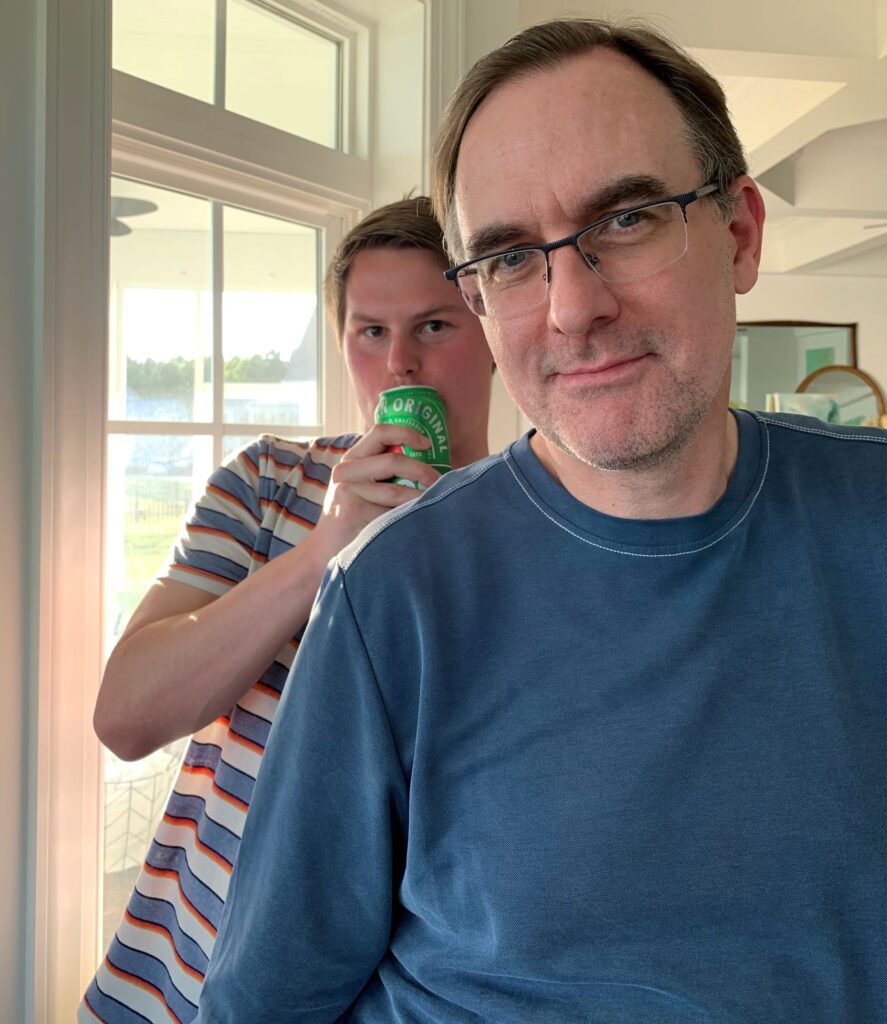
COVID 19 you seem to like togetherness.
We thought we knew what it meant to be together, but you took it to a whole new level. This meant many different things to many different people. Some families want to put this time in a bottle, because they know how precious it is to be locked up with each other and really develop an understanding of what quality time actually is.
Some families saw that maybe there were issues they had particularly enjoyed ignoring, but months together no longer allowed them that privilege. Some families brought back game night and cooking together, and what the heck, let’s make them a TV family, maybe they even did singalongs. Some families retreated to their corners and engaged only when necessary. You put our dynamics under a microscope.
You test and then test us again, and the test never gets easier.
When sheltering in place means isolation, you really test some individuals. One introvert who enjoyed video games said they “had been training for this their whole life.” They love sheltering in place.
For others though, each day produces different cuts at their existence, slight pains of anguish at ongoing isolation. Zoom, facetime and other means of connecting help, but we can’t technologize our need for each other. It is a bare human requirement, and some of us need it more than others.
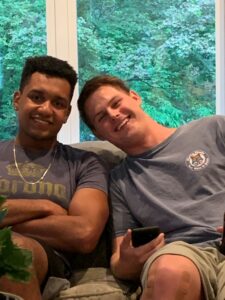
Ethan and Thad Laughing at Memes
You show us ourselves.
You show us our dystopian future – the one we all had been leaning toward. In it, we connect via social media but never leave our homes. Anything we need, Amazon brings us. We never said this is what we wanted; we just sometimes acted that way by texting instead of calling, liking online instead of in person and sharing on social media instead of at a kitchen table. We had grown comfortable this way. Maybe its too early for all of that. We’ll see.
We learned who the really nice ones are.
I award myself “least nice” person in my family. I hit walls during this pandemic. I like to go and do, and I like lots of mixtures of people. The rest of my family adapted quickly to our circumstances. Any moodiness emanated from me. I hope your family put up with you as well as mine put up with me.
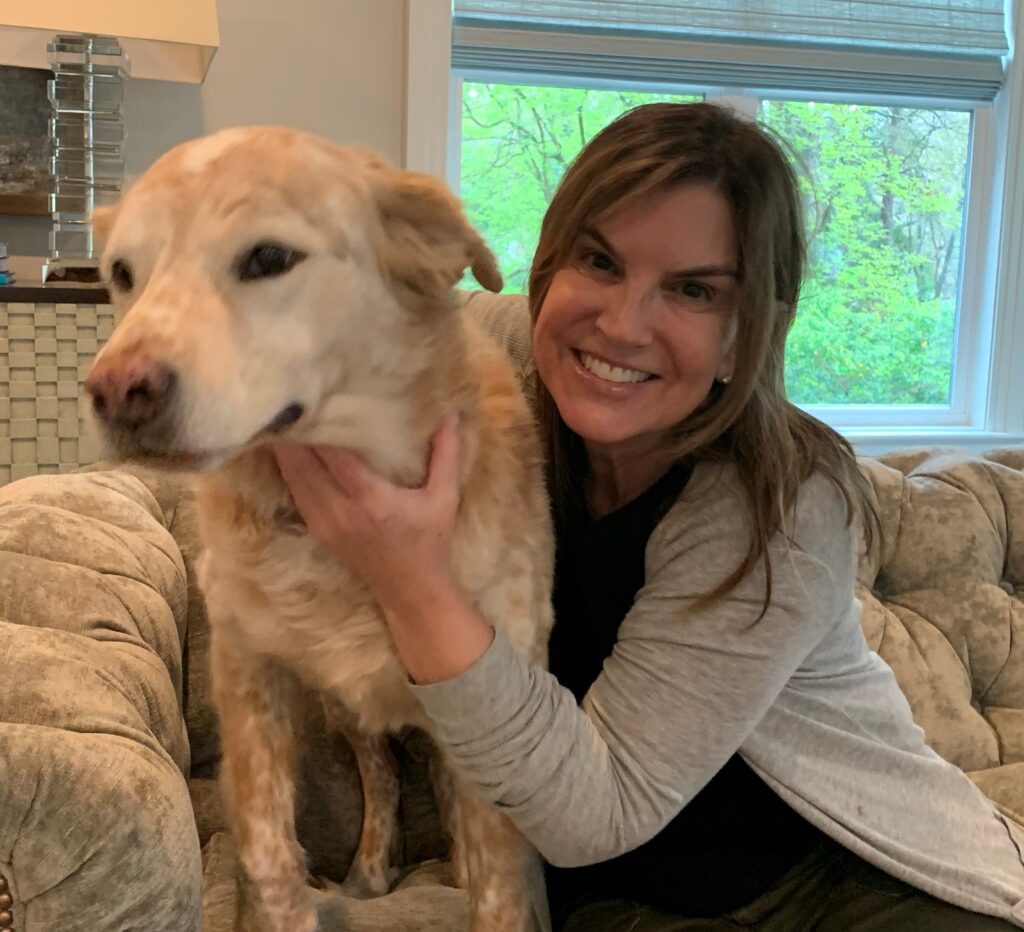
Despite the headlines, a worldwide pandemic doesn’t cause you to run around like your hair is on fire.
Good to know in case nuclear war breaks out. As long as there is WIFI, we can persevere.
You laid bare the fragility of it all.
If you asked any person, “are you going to die?” of course they would say yes. We know this to be true, but the actual contemplation of our death isn’t something we particularly enjoy doing. In fact, most of us avoid it like, I have to say it, the plague. None of us are immune from death, and we must each face the fact that we don’t know how this strange virus will have its way with us.
We enjoy examining statistics and probabilities, but deep down we understand, that 20-year-old who got it and died, he had no pre-existing conditions. That 54-year-old who died, was perfectly healthy. What do we fear most—our own death or the loss of a loved one? These worries that existed in our subconscious, now present in our everyday thinking, and we want to stop knowing how fragile life is. It’s just too much.
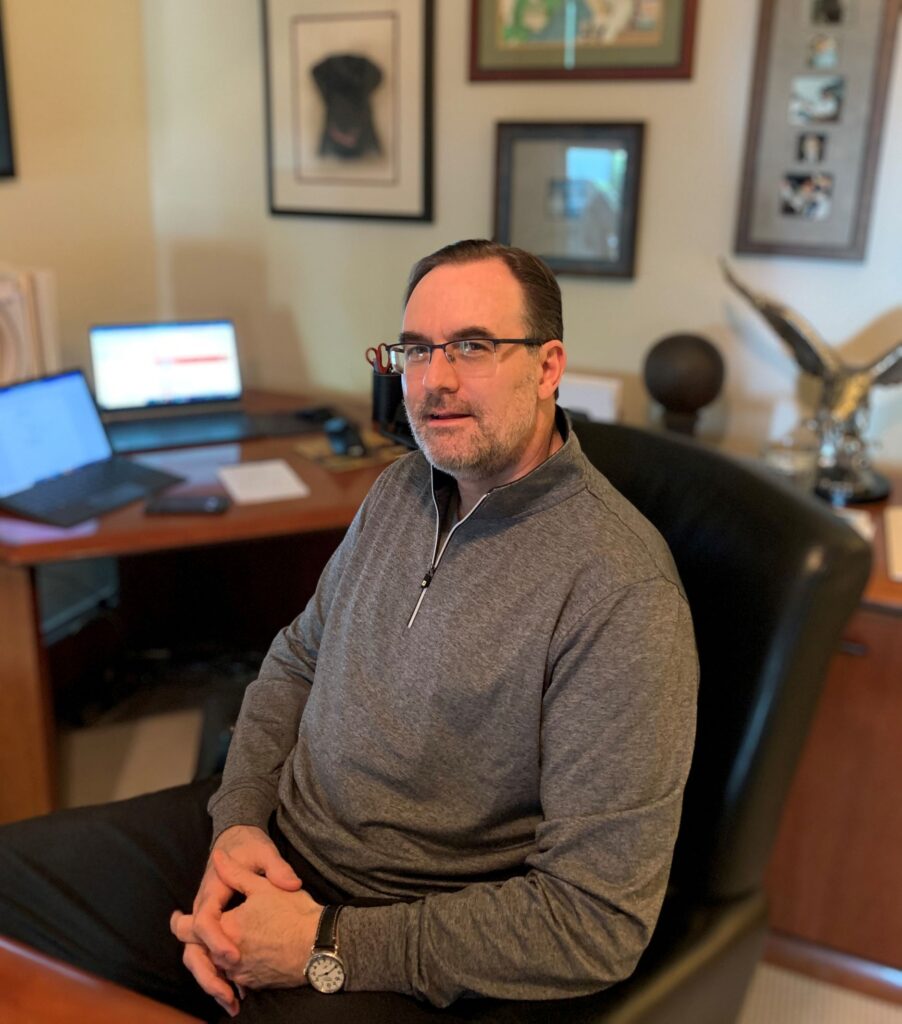
Despite our best efforts, you won’t separate us.
We have firmly placed identities. We are the Northerners or Southerners, we are our ancestors’ nationality, we are American’s, or we are Eagles or Cowboys (yuck) fans, or we are Republicans, or we are Democrats. We have spent lifetimes building these identities; they are important to us. They create clear delineations, and sometimes, they can make us feel really good about ourselves. We are the winners, and they are the losers.
“Nope” you say, “it doesn’t matter.” Is this possibly the very first time we have felt a shared commonality with the entire world? Is that something that can continue to unite us, or are we anxious to go back to our separateness?
You gave us a recipe we won’t be repeating
Most of all, COVID 19, I will remember this strange ingredient list of emotions I have felt every day, and which I can’t wait to no longer feel. Happy because everyone in my family is under one roof, sad that it is because of a virus that is taking the lives so many, fragile, because it could take any one of us, grateful, because (so far,) it has not disrupted our family income, concerned, because none of us can see how this affects the future, apprehensive about doing anything, because COVID, you seem to lurk everywhere, and finally, the strangest mixture of “worried, not worried.”
Every outside source seems to create a feeling of angst and fear. When I tune out those sources, engage with my family, say my prayers, cook meals and throw in yet another load of laundry, I know that even if today were my last day, I don’t think I would change a thing. COVID, you taught me, the mundane IS life, when all along I thought it was what you did before life happened. The mundane has its own rhythm and beauty, and for that I am thankful.
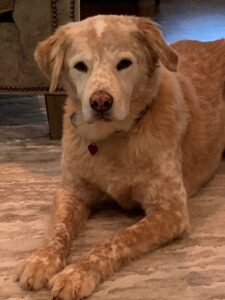
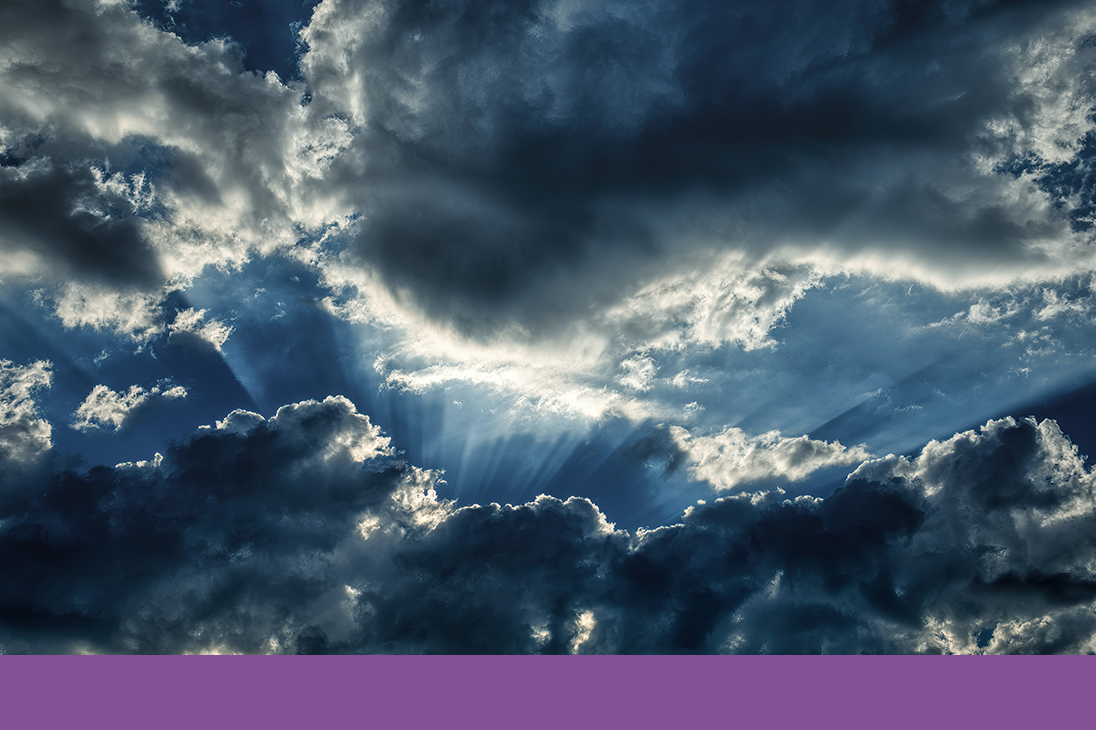

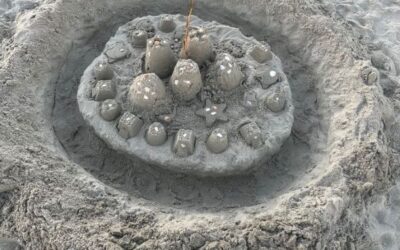
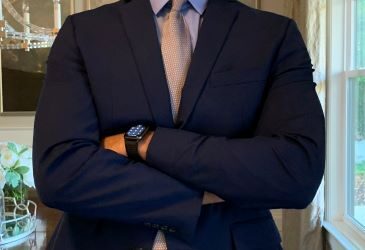
0 Comments